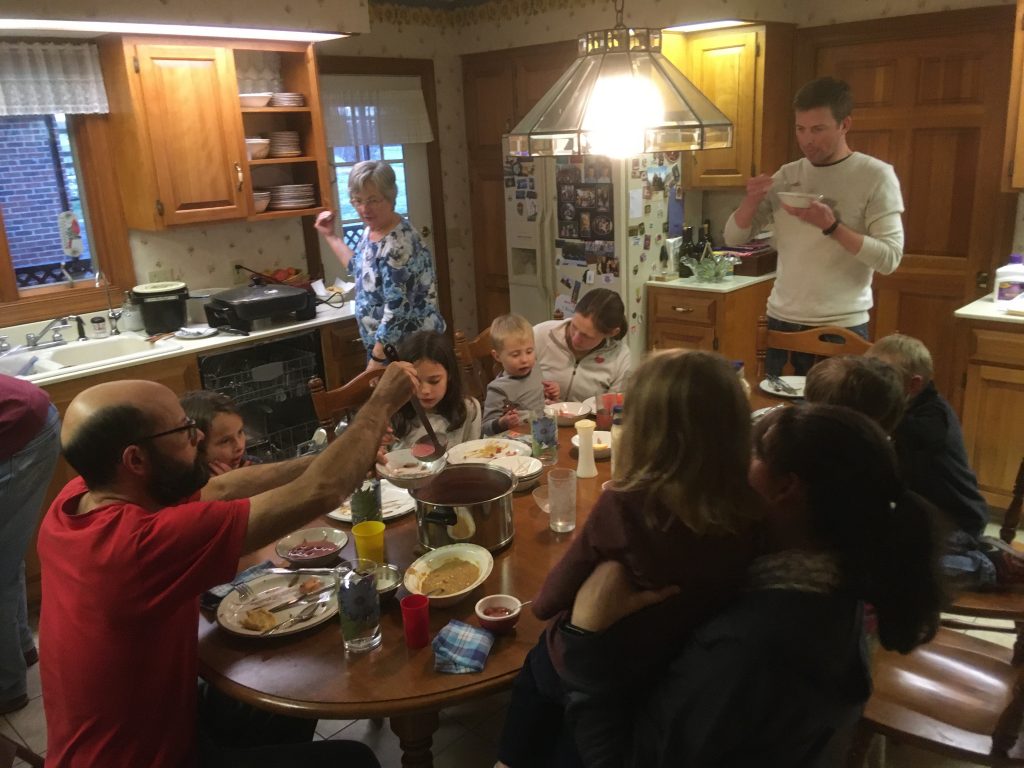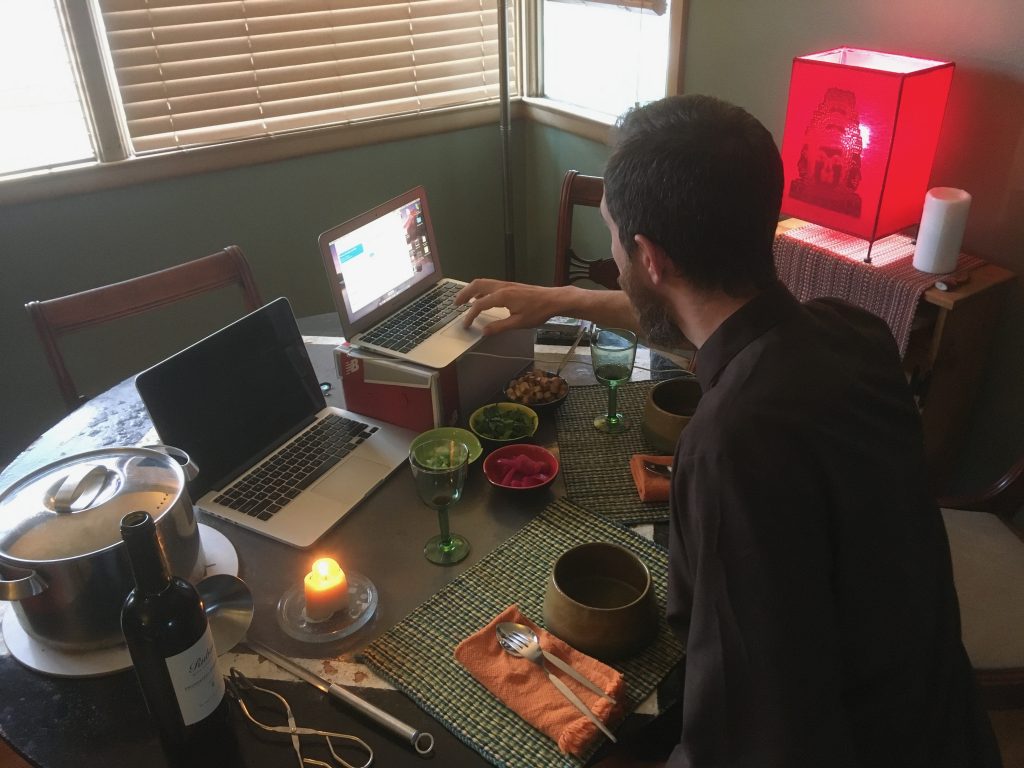When COVID Changed My World
NPR’s All Things Considered is inviting listeners this week to reflect on when they “first realized COVID-19 would change their world.” While I didn’t submit a response, this one-year anniversary of stay-at-home orders and the recent glimmers of hope out of the CDC have me pondering both those early moments of the pandemic and the ways I/we have changed since.
I had traveled east in late February/early March 2020 to visit family. Making my way through various airports, I noticed a handful of passengers wearing face masks.

I remember one curious, unmasked person called out to another who was masked, “Do you have the virus or just playing it safe?” The person responded, “Wearing it just in case.” I washed my hands a lot on that journey, the primary advice I remember hearing in those days.
A few days later, I was meeting with the pastoral team from Orchard Ridge UCC, the church Madison Mennonite rents from. It was Tuesday, March 10, 2020. We were navigating what to do about their Sunday service that week, where I was slated to guest preach. My sermon was titled, “Singing Our Faith: Songs of Liberation, Lament, and Praise.”
(How little we knew, then, about singing and COVID.)
One of the pastors, away on vacation, called in. She had spoken with the executive director of the Wisconsin Council of Churches, who, having spoken with state-level health officials, had said we should expect March 15 to be the last Sunday of in-person worship, at least until Easter.
(How little we knew, then, about how long this would last.)
On Thursday afternoon of that week, I met with the worship leader for the Madison Mennonite service. We had planned to meet at a coffeehouse, where they had stopped letting people bring in travel mugs. You were supposed to ask for any drink accoutrements when ordering; there was no longer a self-serve area.
The worship leader and I sat and talked for a little while about what the emerging news about COVID meant for our Sunday service. A state of emergency had been declared, and uncertainty was growing very quickly. After a little while, I said, “I think the safest thing we can do, based on what we know, is to meet online.” Maybe it would be a blip. Maybe it was overkill. But we knew we could gather with absolutely no viral risk.
(How little we knew, then, what it meant to plan virtual worship.)
Thursday night, I had a conference call with our church board and I relayed the discernment from my afternoon meeting. We were, somewhat surprisingly, in full accord with one another to move worship online and to cancel all other in-person activities. My guest preaching gig was soon canceled as well.
(How little we knew, then, how much would be canceled.)
In the weeks that followed, I was thirsty for wisdom on how to be the church online in the midst of a global pandemic. I was fazed less by the technological side of gathering as the Body of Christ, and more by a general loss of control as speculation about time frames and viral transmission shifted hour-by-hour and day-by-day. In a now-forgotten NPR story, probably mid-April, I heard about the likelihood that vaccines would be the way out of the pandemic, meaning we were looking at a year or more until some semblance of “normal” returned. This was my first “a-ha” moment—where the uncertainty about “Are we going to be worshipping in-person by Pentecost?” turned to “What does it look like to be in this space for a year?”
When I mentioned my shift in thinking to colleagues, saying that I thought it was possible that we wouldn’t worship in-person until Fall 2021, they looked at me quizzically. “Do you mean Fall 2020?” No, sadly, I had meant what I said.
That was a second “a-ha” moment. We were all thinking about this in a dozen different ways. The politicization of the pandemic was leaking into our churches. It was changing us.
(How little we knew, then, that we were already changed.)

#TheMoment, Part 2: When COVID Changed Me will be published tomorrow.
